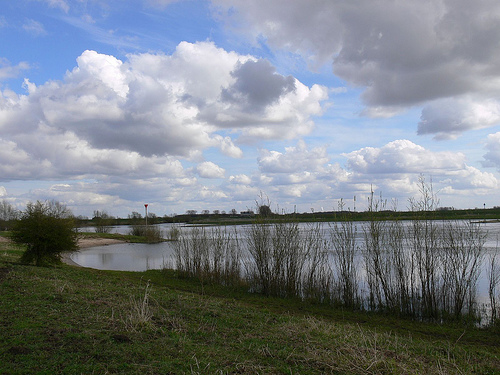Germany “ignores” Dutch calls for action on PFAS in the Rhine

Germany has said it will not take any extra action to reduce the discharge of toxic PFAS chemicals into the Rhine, despite calls from Dutch drinking water companies for action.
Last month drinking water firms wrote to German environment minister Steffi Lemke urging her to “set boundaries” for the discharge. The Rhine is an important source of fresh water for Dutch households.
However, according to Trouw, the minister has said it is difficult to measure the amount of PFAS in industrial wastewater. In addition, she says there is a lack of technology to remove the unwanted chemicals from water entering the Rhine.
“What the Germans are saying is that there is nothing they can do to control the current discharges,” RIWA director Gerard Stroomberg told Trouw. “We are happy to talk to them about this,” he said. Stroomberg called the German attitude remarkable because water companies in the Netherlands can measure and remove PFAS.
PFAS is a collective name for some 4,000 “forever chemicals” that do not break down in the environment. For example, PFAS is used in the non-stick coating of pans and to make rainwear waterproof.
The Dutch government has not publicly supported the Dutch water company’s request to limit discharges. It is involved in negotiations with European countries to come to a ban on the use of PFAS in industry. MPs have asked infrastructure minister Barry Madlener to speed up the process on a national level.
Stroomberg said that the delay is paving the way for more harmful discharges from Germany. Germany is planning to build the biggest battery recycling plant in the EU along the Rhine and that may lead to discharges of both PFAS and lithium into the Rhine, he said. The plant will become operational from 2026 and will process some 30,000 tonnes of batteries from cars and the chemical industry.
PFAS pollution is a growing problem in the Netherlands. In July government officials sharpened their warnings about not letting children play in sea foam while at the beach because it could contain high concentrations of PFAS.
Last year the RIVM warned people who go fishing as a hobby to sharply reduce their consumption of fish, shrimp, oysters and mussels caught in the Westerschelde estuary because of chemical pollution.
Thank you for donating to DutchNews.nl.
We could not provide the Dutch News service, and keep it free of charge, without the generous support of our readers. Your donations allow us to report on issues you tell us matter, and provide you with a summary of the most important Dutch news each day.
Make a donation